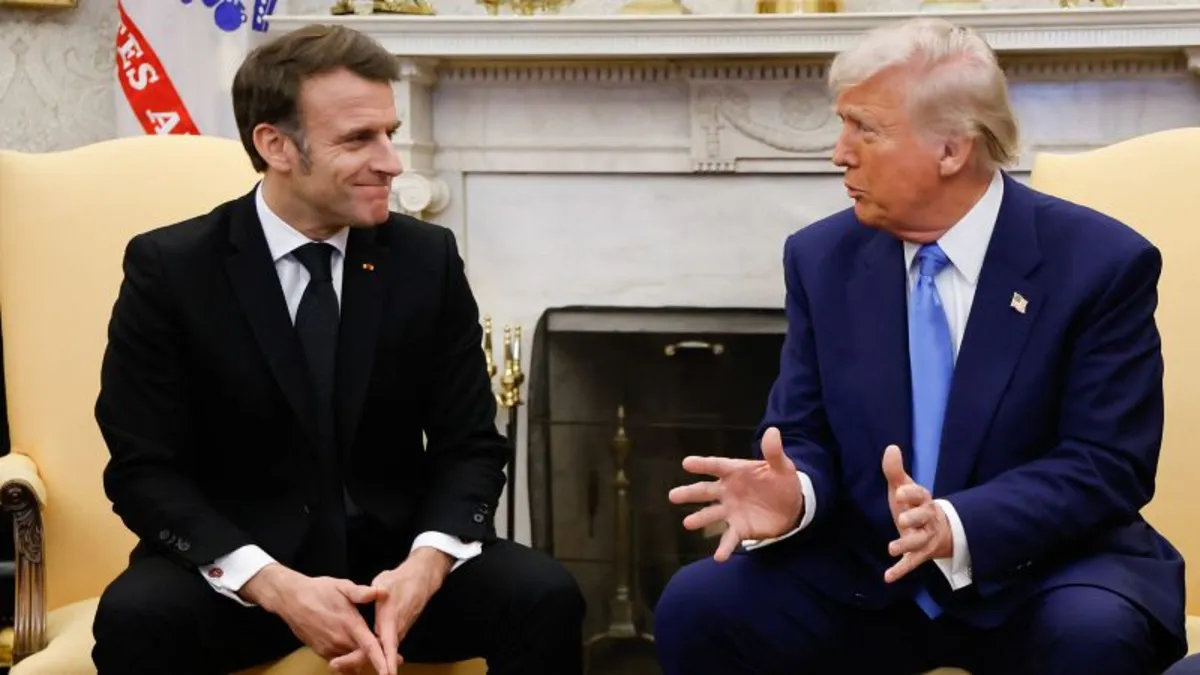
As the third anniversary of Russia's aggression against Ukraine unfolded, the United States opted for new alliances at the United Nations, aligning with nations like Russia and North Korea. This shift in voting partners underscores a significant transatlantic rift, more evident than the cordial handshakes between President Trump and French President Emmanuel Macron. The diplomatic drama, stretching across global capitals from Kyiv to Washington, highlights the evolving geopolitical landscape under Trump's influence.
President Donald Trump's aspiration for a one-on-one summit with Russian President Vladimir Putin has catalyzed an unprecedented wave of crisis diplomacy. While this has opened avenues for potentially ending the prolonged war in Ukraine, it has also disrupted longstanding alliances. America's allies and adversaries are now vying to influence the peace deal Trump aims to broker with Russia, a move that has caused a geopolitical scramble.
On the war's anniversary, global leaders visited wartime Kyiv, standing with President Volodymyr Zelensky. Canadian Prime Minister Justin Trudeau joined this show of solidarity, while British Prime Minister Keir Starmer advocated for the G7 to adopt tougher sanctions against Russia. In contrast, Trump hopes to reintegrate Russia into the G7. In Moscow, Putin praised Trump for his perceived independence from European leaders, who he claims are too aligned with Ukraine.
Amidst the diplomatic theater, a central theme emerges: Trump's desire for a significant deal to enhance his reputation. While this approach might lead to an agreement that could utilize Ukraine's rare earth metals and minerals, it raises concerns about the details and implications of such a deal. Critics argue that peacemaking transcends the business deals Trump is accustomed to, as it involves complex historical and geopolitical considerations.
During his visit to the White House, Macron employed his diplomatic skills to engage with Trump, emphasizing the need for a robust peace agreement with security guarantees for Ukraine. Macron's efforts highlight the European desire for American support in ensuring that any peace deal deters future aggression from Russia.
The United Nations witnessed a significant shift as the US delegation voted alongside Russia and North Korea against a resolution condemning Russian aggression in Ukraine. This voting pattern, diverging from traditional allies like France and Britain, underscores the changing dynamics of America's global role under Trump's leadership.
In conclusion, Trump's approach to international relations is reshaping America's global role, challenging traditional alliances, and paving the way for new geopolitical dynamics. While his unorthodox methods may offer opportunities for peace, they also pose risks and uncertainties for the future of global diplomacy.